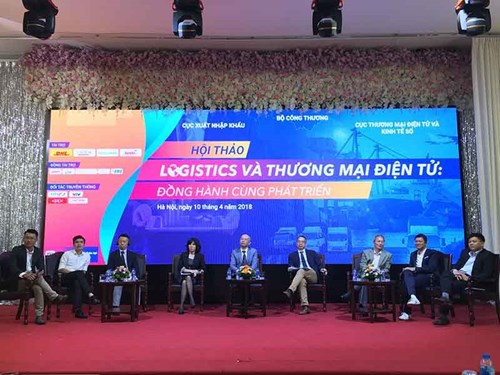Tran Thanh Hai, deputy head of the Foreign Trade Agency under the Ministry of Industry and Trade, stressed that e-commerce will be the development trend in the future, to which logistics services are indispensable.
E-commerce and logistics firms have established connectivity in recent time but the partnership faces many problems such as a lack of a law on e-logistics, regular changes of transport regulations, complicated administrative procedures, shortage of skilled and experienced human resources, and low application of technology in e-logistics, Hai noted.
    |
 |
|
At the workshop. (Photo: dangcongsan.vn) |
Vice Chairman of the Vietnam Logistics Association Dao Trong Khoa said apart from the government’s effort, businesses need to proactively create a favourable business environment and harmonious legal regulations.
The collaboration between traditional logistics firms and startups in e-commerce services is essential to promote growth of the two industries, he added.
Khoa pointed out that technology is a barrier for Vietnamese logistics enterprises that prevent them from further involving in the e-commerce field.
He said if businesses link up with others, they can take advantage of each other’s services and better meet the demand of customers.
Director of Lazada Express Vu Duc Thinh said logistics costs in Vietnam account for 30 percent of all e-commerce revenue, which is higher than that in other countries such as India, where the rate is no more than 15 percent.
The lack of collaboration between e-commerce and logistics enterprises may result in lost opportunities for businesses, he said.
According to the Vietnam E-commerce Association (VECOM) growth in the country’s e-commerce sector was more than 25 percent last year, and this growth rate could be maintained between 2018 and 2020.
Source: VNA